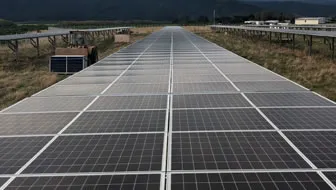
Solar energy has come to stand out as a revolution in rural areas, availing sustainable solutions and not being reliant on traditional power infrastructures that underserve a community. The great potential of solar energy use in rural areas can go well beyond electricity and into transforming lives, empowering communities, and driving economic growth.
Another critical impact of solar energy is the change it has brought to rural areas, where electrical facilities have reached those areas not connected with the main power grid. In most countries of the world that have a lower development status, rural communities have struggled for years with either an unreliable or a lack of electricity supply, which has kept them from engaging in productive activities, healthcare, and education. These areas are now being illuminated with much-needed light, from simple solar panel lights to off-grid solar power solutions, enabling families to lighten up their homes, power essential devices, and extend their productive hours well into the evening. The result of this new access to electricity is a closing gap between urban and rural areas as rural communities become better integrated into the modern economy.
However, in more rural areas, the use of solar energy creates entrepreneurial opportunities and supports economic development. Entrepreneurial persons now seize the opportunity to set up small-scale solar businesses that offer installation, maintenance, and repair services on solar panels and related equipment. This gives local citizens direct employment opportunities while fostering local know-how in renewable energy technology. This reduction in reliance on expensive, polluting diesel generators frees up some disposable income in rural areas that can be reinvested into other community development projects, further contributing to economic growth and sustainability.
Secondly, solar energy has been found to catalyze social empowerment and environmental sustainability in rural areas. Solar power enhances healthcare provision through efficient electrification of medical facilities and refrigeration of vaccines, as well as other essential drugs. This also encourages educational opportunities to come forth, as schools can now deploy technologies like computers and the internet. In this way, the shift towards solar energy reduces reliance on fossil fuels, curtails environmental degradation, and adds up to mitigating climate change.
The other important area in which solar energy has proven beneficial to rural areas is in resilience building and disaster preparedness. In disaster-prone areas or those with dubious semblances of grid power, the viability of solar energy systems is nowhere near the reliability of grid power. Such decentralization brings about great resilience in ensuring there is continuity of service in times of disruption. Resilience is critical for safeguarding livelihoods and protecting communities that are most vulnerable from the various impacts of climate-related events.
More importantly, where solar energy is widely adopted in rural settings, it will usher in a new era of sustainable development, empowerment, and progress. Its potential impact on rural communities will continue to increase as associated costs steadily decline with increasing technology. In this way, it becomes necessary that stakeholders, in the form of both governments and businesses, as well as non-governmental organizations, continue to invest and support solar energy initiatives for full realization of its benefit in rural areas around the world. Reach out to us on any of our contact details at Sustaina for more information.

Comment (1)
Sed faucibus placerat bibendum. Maecenas sollicitudin commodo justo, quis hendrerit leo consequat ac. Proin sit amet risus sapien, eget interdum dui. Proin justo sapien, varius sit amet hendrerit id, egestas quis mauris.
Comments are closed.